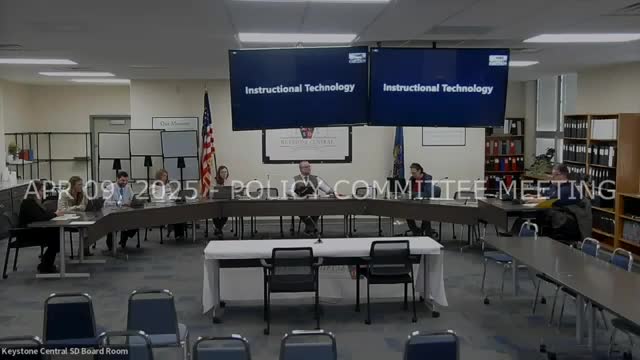Article not found
This article is no longer available. But don't worry—we've gathered other articles that discuss the same topic.

Committee hears staff update on vendor-fraud safeguards; tear-gas carriage restricted to vehicles only

Keystone Central SD moves generative-AI policy to first reading; staff training and privacy checks emphasized

Policy committee to revise procurement-card policy, board to approve annual card-holder list in May

